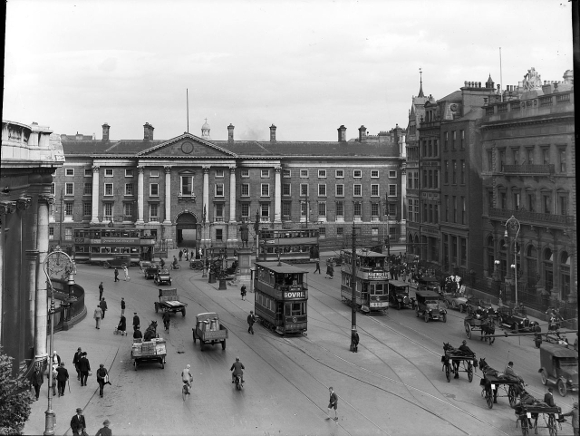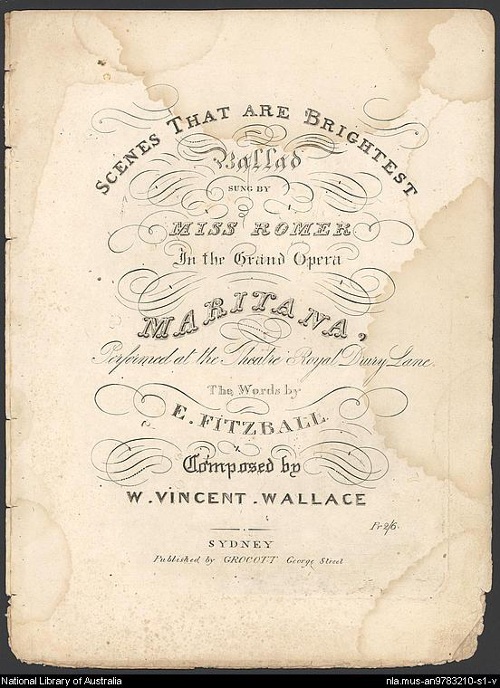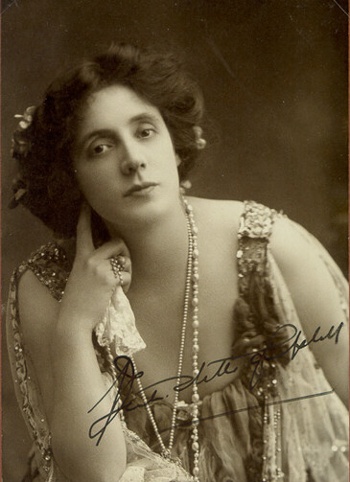Dubliners Contents
- Social / political context
- Religious / philosophical context
- Literary context
A Mother
Synopsis of A Mother
A series of concerts has been arranged on behalf of an Irish nationalist organisation and Kathleen Kearney, an exceptionally talented young pianist and a nationalist supporter, is engaged as accompanist for all four concerts. Her mother, ambitious for her daughter’s career, negotiates a contract by which Kathleen will be paid eight guineas for all four concerts.
The first and second concerts are poorly attended. The organising committee has been too ambitious and the advertising has not been extensive enough. Mrs Kearney becomes concerned about her daughter being paid and begins to pester the officials of the organisation. However, no one seems prepared to accept responsibility for ensuring that the contract is honoured.
The third concert is cancelled, extra advertising is arranged and the fourth concert is well-attended. Mrs Kearney once again demands a guarantee of payment. Eventually she threatens that Kathleen will not be playing unless she is paid. Grudgingly, she is given part of the fee. During the concert’s interval she demands the rest of the money if Kathleen is to play in the second half. However, no money is forthcoming, another pianist agrees to take Kathleen’s place and the Kearney family leaves the theatre in anger.
It is generally agreed that Mrs Kearney has behaved badly, making an exhibition of herself in public, and that in doing so she has fatally damaged her daughter’s career.
Commentary on A Mother
Eire Abu A nationalist slogan meaning Ireland to Victory.
a bootmaker on Ormond Quay Both her husband’s occupation and his address indicate that, following Mrs Kearney’s privileged upbringing and her superior education, she has defied her parents’ ambitions for her and married beneath her.
went to the altar on every first Friday Mr Kearney takes Holy Communion regularly on the first Friday of every month. He is devout and conscientious in performing his religious duties.
a society An assurance society which sold policies timed to mature when the Kearney daughters reached a certain age.
 the Academy The Royal Irish Academy of Music in Dublin. It is perhaps an irony that someone with Kathleen’s nationalist sympathies should attend an institution with the word ‘Royal’ in its title, but at that time she would have had little choice.
the Academy The Royal Irish Academy of Music in Dublin. It is perhaps an irony that someone with Kathleen’s nationalist sympathies should attend an institution with the word ‘Royal’ in its title, but at that time she would have had little choice. the Irish Revival In the last decades of the nineteenth century a revival of interest in Celtic and Gaelic culture was one of the ways in which nationalist feeling was manifested. This included the rediscovery of the tradition of art and writing since the earliest times, as well as renewed interest in using Irish myths, legends and history in contemporary work.
her daughter’s name Mrs Kearney has named her daughter Kathleen after Kathleen ni Houlihan, a celebrated figure in Irish mythology. W. B. Yeats (1865-1939) wrote a play called Cathleen ni Houlihan, which was extremely well received when it was first produced in Dublin in 1902.
Nationalist A term describing anyone who supported Home Rule for Ireland.
said good-bye … in Irish It’s unlikely that Kathleen and her friends were fluent in Irish, but to exchange phrases in this way was a mark of their support of Irish culture and of their fellowship.
the language movement The Celtic Revival included attempts to halt the decline in the use of the Irish language – more advanced in the large cities than in the towns and villages of the countryside – and restore it as a living language which could supplant English.
charmeuse The literal meaning of this French word is ‘charming’ or ‘winning’, but here it refers to some kind of decoration added to an item of dress.
Commetty An example of pronunciation in Mr Fitzpatrick’s ‘flat’ Irish accents, of which Mrs Kearney disapproves. This is the only occasion in Dubliners when Joyce offers a phonetic version of this accent, although many of the characters must use it.
the dear knows This is a very common Irish euphemism, which is a polite and slightly despairing manner of saying ‘God knows’.
 Maritana An operetta by William Vincent Wallace (1812-65), an Irish composer, with a libretto by Edward Fitzball (1792-1873), an English playwright. First performed in Dublin in 1846, it became extremely popular.
Maritana An operetta by William Vincent Wallace (1812-65), an Irish composer, with a libretto by Edward Fitzball (1792-1873), an English playwright. First performed in Dublin in 1846, it became extremely popular. Yous A version of the plural second person pronoun, which at the time the story was written would have marked out the speaker as being poorly educated.
Feis Ceoil Established in 1897, this was a festival devoted to Irish traditional music and was part of the Irish cultural revival that forms part of the context for this and other stories in Dubliners.
The Freeman man The Freeman was a daily newspaper that supported the Irish Nationalist cause.
 Mrs Pat Campbell Mrs Patrick [Beatrice Stella] Campbell (1865-1940) was one of England’s best-known actresses, who specialised in grand and passionate parts.
Mrs Pat Campbell Mrs Patrick [Beatrice Stella] Campbell (1865-1940) was one of England’s best-known actresses, who specialised in grand and passionate parts.Killarney A popular and sentimental song by the Irish composer Michael William Balfe (1808-70).
fol-the-diddle–I-do Mrs Kearney is mocking what she thinks of as Mr Holohan’s sense of self-importance and his refusal to take responsibility for the problems in paying Kathleen’s fee. The phrase itself is nonsense, but Mrs Kearney here gives the sense of ‘I don’t care’, or ‘It’s not my problem’. Her use of these words, as Mr Holohan’s response indicates, suggests that she is lowering herself in this unseemly squabble about money.
Investigating A Mother
- Compare Mrs Kearney with Mrs Mooney from The Boarding House.
- What are the similarities and differences between the characters?
- To what extent does Joyce portray mothers negatively in Dubliners?
An advocate of political independence for a particular country.
The central act of Christian worship in which bread and wine are consumed in the way that Jesus demonstrated at the Last Supper before his betrayal and death.
Renowned Irish Symbolist poet, awarded the Nobel Prize in Literature in 1923.
The term used for the late nineteenth and early twentieth century Irish movement striving to obtain independence from Britain and to establish self-governance.
A more pleasant way of expressing something distasteful or unpleasant, usually about death or sex.